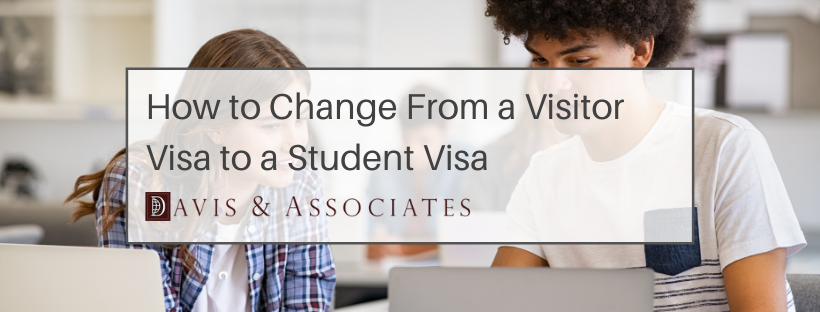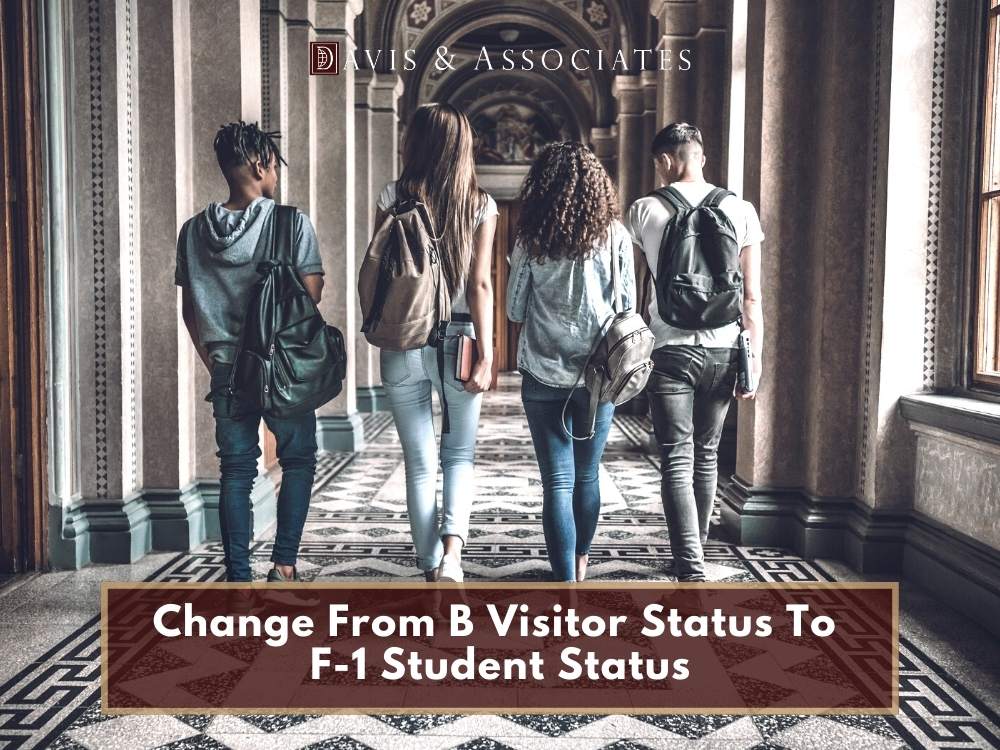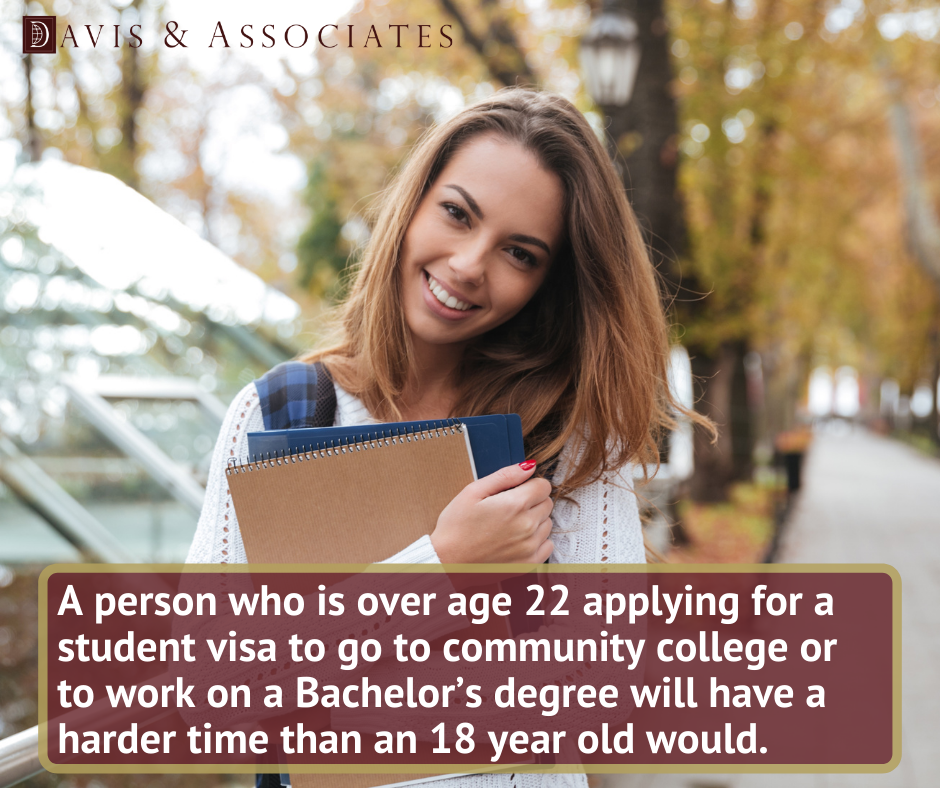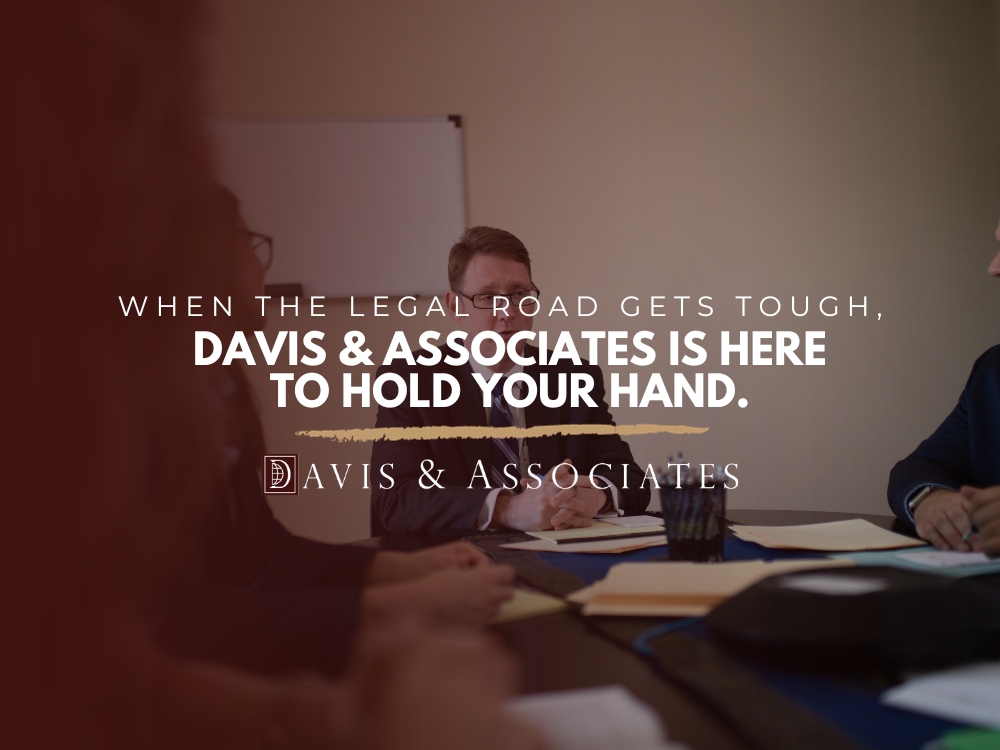
Why Do B-1 and B-2 Visa Holders Get Their F-1 Visa Denied?
Some visitors in the United States on B-1 or B-2 visitor visas can change over to an F-1 visa to become a student – but only under certain circumstances. Here’s what you need to know if you’d like to go from a B-1 or B2 visa to an F-1 student visa. We’ll also go over some of the main reasons people’s student visa applications are denied.
What Is An F-1 Visa?
An F-1 visa is also known as a student visa. It allows you to stay in the United States as a full-time student. While there are a variety of academic institutions that qualify, the important condition is that it is a Student and Exchange Visitor Program (SEVP)-certified school. Homeland Security has a school search page to search for SEVP-certified schools.
How To Change From B Visitor Status To F-1 Student Status
 Many people who come to the U.S. for business or tourism on B visas decide they’d like to attend school here. However, you cannot attend school on a B-1 or B-2 visa. You can only study in the United States if you have the right visa, which is often an F-1 student visa. (People who wish to attend a vocational or other recognized nonacademic institution, other than a language training program must apply for an M visa.)
Many people who come to the U.S. for business or tourism on B visas decide they’d like to attend school here. However, you cannot attend school on a B-1 or B-2 visa. You can only study in the United States if you have the right visa, which is often an F-1 student visa. (People who wish to attend a vocational or other recognized nonacademic institution, other than a language training program must apply for an M visa.)
With an F visa, you may study at a:
- University or college
- High school
- Private elementary school
- Seminary
- Conservatory
You can also study at another academic institution, including a language program, on an F visa.
You must meet certain conditions if you want to change from B-1 or B-2 visitor status to an F-1 student visa; if you don’t, the U.S. government will deny your petition. You must:
- Not have enrolled in classes
- Have a valid B status that is not expired at the time of your application
- Have not engaged in any unauthorized employment
For many people, the best way to make this change is to work with a Dallas or Houston immigration attorney. That’s because the process can be confusing – and it can be time-consuming. You must meet certain deadlines, and you may be asked to provide the U.S. government with additional information. It’s often easier to work with an attorney who will handle everything.
The DS-160 For Changing From A B Visa To An F Visa
You must fill out and file Form DS-160 before you can apply for an F visa. You’ll also need to schedule an interview if you’re aged 14 to 79. People 13 and younger, as well as those 80 and older, are generally not required to sit for an interview at the U.S. embassy or consulate in their home countries. Your immigration attorney can give you more specific guidance, as well as advise you on what type of documentation you need to gather. You will also need to communicate with the school you wish to attend before you apply for an F visa – but you cannot enroll in any classes if you are in the United States on a B visa.
Most people need, at minimum:
- A passport valid for travel to the United States
- The confirmation page from filing Form DS-160
- A receipt for paying the application fee if you were required to pay before your interview
- A photo that meets the U.S. State Department’s requirements
- Certificate of eligibility for nonimmigrant student status
- Form I-20, which you will receive from your school after it has entered your information in the Student and Exchange Visitor Information System, or SEVIS
What If Your Status Will Expire Before Your Academic Program Starts?
If your B visa status will expire before your academic program starts, your attorney will file Form I-539 for you. There’s an added fee for the form, but once you have filed it and the government has approved it, you can extend your B status. This is absolutely necessary if you want to change from a B-1 or B-2 visa to an F-1 visa – and remember, you cannot enroll in a course of study before the government approves your change of status application. If you do, the government will deny your change of status application – and it will deny your extension, as well, because doing so would have violated the terms of your B visa, as well.
What If You Aren’t Eligible To Change Status?
If you can’t change your status to F-1, you may still be able to apply for an F-1 visa at a U.S. consulate abroad. It may be in your best interest to work with an immigration attorney who can contact your school and get further guidance.
A Letter From Our Lead Attorney, Garry Davis
Over the years, and particularly recently, I have received many calls from people who have been refused F-1 student visas at the U.S. consulates throughout the world.
The scenario looks like this:
A person applies for and receives a visitor visa to the US, a B-1/B-2 visa from the local US consulate. That visa is to be used for the purpose of entering the US for a legitimate business or tourism purpose.
The person then comes to the US and enters as a visitor and is given a certain amount of time to be in the US, generally six months. During that six-month period, the person is accepted into a school program and files to change status to F-1 student. After approval, the person enrolls in school and maintains student status.
Some time later, the person decides to go home to see the family. He or she gathers the I-20 and other immigration paperwork and head home. There is an online application for a nonimmigrant visa, F-1 in this case, with the US consulate.
This is generally the same US consulate that previously issued the B-1/B-2 Visitor Visa. Fully expecting to receive the visa, the person attends the required visa interview with high hopes of being approved. Then, to their shock and surprise, the consulate refuses the visa, and finally the person contacts me to ask what the options are to try to correct the issue and get back to the US to continue the program.
So, what happened? If the person has done nothing illegal, why would the consulate refuse the visa? USCIS granted the change of status, so why wouldn’t the visa just follow that approval?
The answer is simple – consulates are offended by people who file to change status in the US, and this is the consequence of that offense. Let me explain why.
When a person comes into the US as a B-2 Visitor, the stated purpose is for vacation. If the person then decides to go to school, that is not in line with tourism. From the consulate’s perspective, the person used the visitor visa for a purpose other than the stated purpose, and a new visa should be refused.
To qualify for most nonimmigrant visas, including B and F visas, the law requires an applicant to establish to the Consular Officer’s satisfaction that he or she intends to return home at the end of the stay in the US. If the person can’t do that, then the visa should be refused.
The thought process in the B-2/F-1 situation is that the person said he or she intended to leave the US at the end of his or her stay, but then didn’t and changed status instead. Not being able to establish an intent to depart results in a visa refusal, and not departing the last time is an indicator of a lack of intent to depart this time, according to the thought process of the consular officers.
What should the person have done instead? What I recommend to people who may have a need to travel internationally while going to school, after using a B-2 visa to enter the US, they can:
- Get accepted to the school of choice.
- Obtain the required documentation from the school.
- Leave the US with that documentation.
- Apply for the F-1 visa at the consulate.
Of course, the question I always get when I give this advice is, “What if they refuse the visa?”
My response is always this, “If you change status here in the US, and need to then go get the visa, it’s highly likely to be denied. At least if you go from the beginning to them with the visa application, you have a chance. After all, they approved the tourist visa, so there is a good chance they will approve the student visa as well, especially since you’ve chosen to do it the ‘right’ way.”
 Of course, there are risk factors. Marital status, such as being married to a US citizen or resident, the person’s age, and the person’s prior education factor in as well.
Of course, there are risk factors. Marital status, such as being married to a US citizen or resident, the person’s age, and the person’s prior education factor in as well.
For example, a person who is over the age of 22 applying for a student visa to go to community college or to work on a Bachelor’s degree will have a harder time than an 18 year old would. If the person already has a Bachelor’s degree and is going to the US for a Master’s or higher program, age is less of an issue.
The other option is to not leave. It is still possible, although it is much more difficult than it used to be, to file for change of status to F-1 in the US. I always discourage it as an option, but if the person is committed to that course of action, then they need to know they won’t be leaving the US while an F-1 student, unless they are willing to take a ton of risk that the consulate will refuse the visa for the reasons explained above.
At the end of it all, my very strong advice to anyone considering it is to not try for a student visa at the US consulate after having changed status in the US. It is very risky. People don’t realize the risk because of being granted a visa before and being approved by USCIS. Unfortunately, that is not how it works.
Other Reasons Student Visas May Be Denied
There are plenty of other reasons that a student visa can be denied even when their visitor visa was approved. We will discuss several of them. Keep in mind, these reasons highlight why it’s so important to get help from an attorney who is experienced in student visa applications. Once a visa has been denied, future applications become even more heavily scrutinized.
Section 221(g) Refusal.
A 221(g) refusal is often only a temporary refusal pending additional documentation or to allow for additional administrative processing, but if the delay results in a missed semester, the impact could be permanent for all intents and purposes.
The students most likely to face a 221(g) delay are STEM participants, especially when their country of citizenship is concerning. The added administration processing with these students is for additional security clearance. Specific fields of study that can sometimes raise red flags include nuclear technology, rocket systems and UAV subsystems, chemical and biomedical engineering, advanced computer technology, information security, robotics and urban planning.
Activities Of A Visa Consultant
Some people seek help from a consultant instead of an experienced attorney. Far too often these consultants give bad advice, and some have even submitted false information whether intentionally or unintentionally. It doesn’t really matter if the student was unaware of the problems with their application, if an issue is spotted, it will reflect badly on them.
Inadequate Financial Documentation
People seeking student visas must be able to prove that they can pay for their entire first year of an academic program. They will be on the lookout for suspicious or unexplained deposits into your bank account shown on your statements. Sometimes students forget to provide documentation of their scholarships. Sometimes issues like these may only result in a delay, but sometimes they will result in a denial.
Failing To Disclose All Relatives Within The United States
When you are asked to disclose the names of your relatives within the states, they don’t only mean the relatives that you are close to. If they discover that you have other relatives in the states that you failed to mention, it can be seen as a material misrepresentation. Similarly, if a family member didn’t follow the rules on their own visa, this can count as a strike against your family’s credibility.
Your Choice Of Schools
Even though the quality of the school isn’t supposed to be a factor in your approval, in practice, it’s sometimes a red flag. It may seem more likely that you would seek a student visa to go to a well-known university than that you would choose to seek a visa to go to a small unknown community college. Similarly, if you’ve been accepted into a prestigious Ivy League school, they may think to themselves, “This must be a smart, serious student.”
Honest Mistakes On The Application
Language deficiencies, unfamiliarity with US legal terms, honest mistakes, and cultural differences can sometimes play a role in errors in the application. Consider that a self-employed person may not know how to answer employment questions properly. Alternatively, someone with an expunged criminal record might not realize that they still want to know about that situation.
 Misrepresentation Of The School’s Admission Process
Misrepresentation Of The School’s Admission Process
When looking into your student visa application, will they find any contingencies of your enrollment that have not been satisfied yet? Here’s an example.
Let’s say that the university that accepted you only did so contingent on passing a certain exam. Even if you’ve already been accepted, if they discover that you haven’t met that prerequisite, the person deciding on your visa might wonder whether you submitted a falsified document to the school or if your acceptance was an oversight on the part of the university.
Do You Need To Change Your Status From B-1/B-2 To F-1?
Whether you choose to apply for the F-1 visa from inside or outside the U.S., your best chance at approval will be to work with an experienced immigration lawyer.
To speak with one of our attorneys for free and discuss your individual case, call our firm, Davis & Associates, at (214) 628-9888.
About Davis & Associates:
Davis & Associates is the immigration law firm of choice in Houston & North Texas including Dallas, Fort Worth, Plano, Frisco, McKinney and surrounding areas. Their attorneys provide expert legal counsel for all aspects of immigration law, including deportation defense, writs of habeas corpus and mandamus, family-sponsored immigration, employment-sponsored immigration, investment immigration, employer compliance, temporary visas for work and college, permanent residence, naturalization, consular visa processing, waivers, and appeals. Attorney Garry L. Davis is Board Certified in Immigration and Nationality Law by the Texas Board of Legal Specialization.
Dallas Contact Info:
Address: 17750 Preston Road Dallas, TX 75252
Phone: (469)957-0508
Houston Contact Info: Address: 6220 Westpark Dr, Suite 110, Houston, TX 77057
Phone: (832) 742-0066
